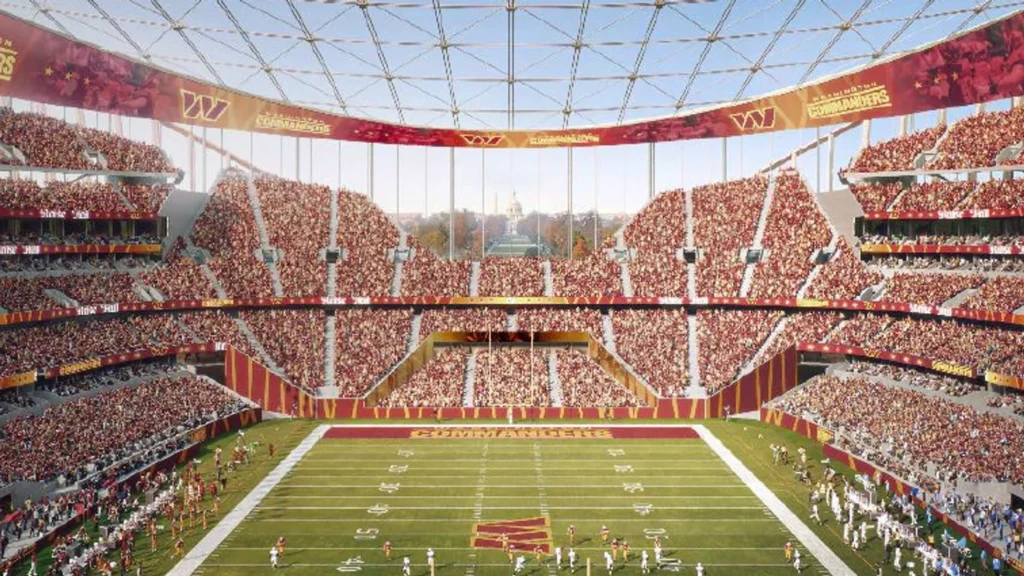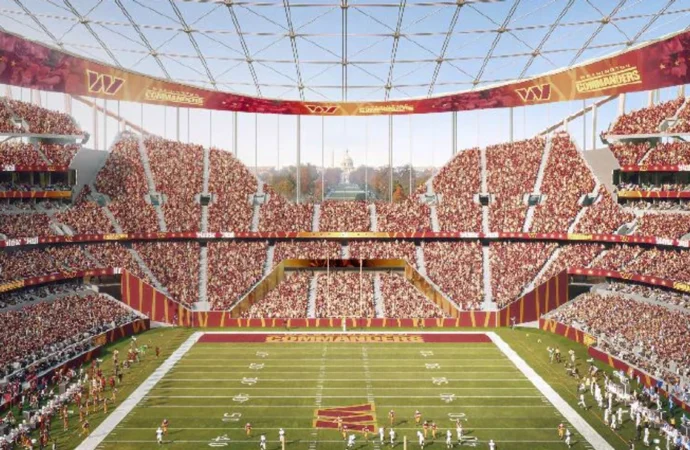Washington D.C. is preparing for one of its most ambitious redevelopment projects in decades following the City Council’s approval of a $3.7 billion stadium and infrastructure deal for the site of the old RFK Stadium. The agreement, passed by an 11-2 vote, paves the way for a new 65,000-seat stadium for the Washington Commanders and
Washington D.C. is preparing for one of its most ambitious redevelopment projects in decades following the City Council’s approval of a $3.7 billion stadium and infrastructure deal for the site of the old RFK Stadium. The agreement, passed by an 11-2 vote, paves the way for a new 65,000-seat stadium for the Washington Commanders and a sweeping transformation of 180 acres along the Anacostia River.
The project envisions more than just a stadium. Plans include the creation of riverside parks, public green spaces, entertainment and retail districts, and between 5,000 and 6,000 units of affordable housing. The stadium itself, which will be financed largely by the Commanders at an estimated $2.7 billion, will anchor the development. The District’s $1 billion contribution will focus on upgrading roads, utilities, public transit links, and tree preservation to ensure the project serves both fans and residents.

Mayor Muriel Bowser has championed the plan as an economic engine, promising thousands of jobs during construction and long-term opportunities for local businesses once the complex opens. With construction expected to begin in 2026, city leaders hope to finish in time for the 2030 NFL season, with an eye toward hosting global events such as the 2031 Women’s World Cup final.
Still, the deal has sparked debate. Supporters say it represents a once-in-a-generation opportunity to reinvigorate a neglected part of the city, bringing new housing and community spaces to areas long left behind. Opponents warn that public funding for stadium projects often fails to deliver promised benefits and argue that more oversight is needed to ensure that affordable housing targets are met. Environmental groups have also pressed for stronger protections along the Anacostia River, where runoff and tree removal could cause long-term harm if not carefully managed.
Yet the momentum is undeniable. After Congress transferred the land to the District last year, the push for development became urgent, with city leaders fearing the opportunity might be lost without swift action. The Commanders’ investment, coupled with the District’s infrastructure commitments, represents a rare alignment of sports, business, and political will. If successful, the RFK redevelopment could become a model for urban renewal proving that stadium projects, often controversial, can also deliver meaningful community benefits when coupled with affordable housing, public green space, and long-term planning.

















Leave a Comment
Your email address will not be published. Required fields are marked with *